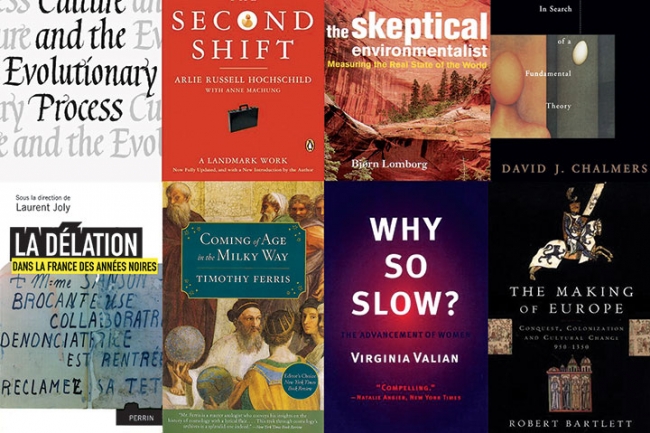Stanford Professor T.M. Luhrmann Recommends Julian Jaynes’s “The Origin of Consciousness in the Breakdown of the Bicameral Mind”
The Chronicle Review asked 12 scholars what nonfiction book published in the last 30 years has most changed their minds—not merely inspired or influenced their thinking, but profoundly altered the way they regard themselves, their work, the world.
T.M. Luhrmann
A Bold, Lyrical Theory of Experience
For me, that book was by Julian Jaynes. The Origin of Consciousness in the Breakdown of the Bicameral Mind (1976) is one of those lush, overambitious books that gets many things wrong, but in such an interesting way that readers, on finishing it, find that they think about the world quite differently. At least I did, although I think the book crept up on me year by year until I suddenly decided that this odd book I’d read in college had a fundamental insight—and had presented to me the puzzle that became my life’s work.
Jaynes taught psychology at Princeton, back in the days before psychologists had walled themselves off from literature, and he noticed that in the Homeric epics, the gods took the place of the human mind. In the Iliad we do not see Achilles thinking. Achilles acts, and in moments of strong emotion, he acts as the gods instruct him. When Agamemnon steals his mistress and Achilles seethes with anger, Athena shows up, grabs him by the hair, and holds him back. Jaynes argued that Athena popped up in this way because humans in archaic Greece had no words for inner speech. So when they felt compelled by this strong internal force, they attributed that sensation to the gods. “The gods take the place of consciousness.” …


